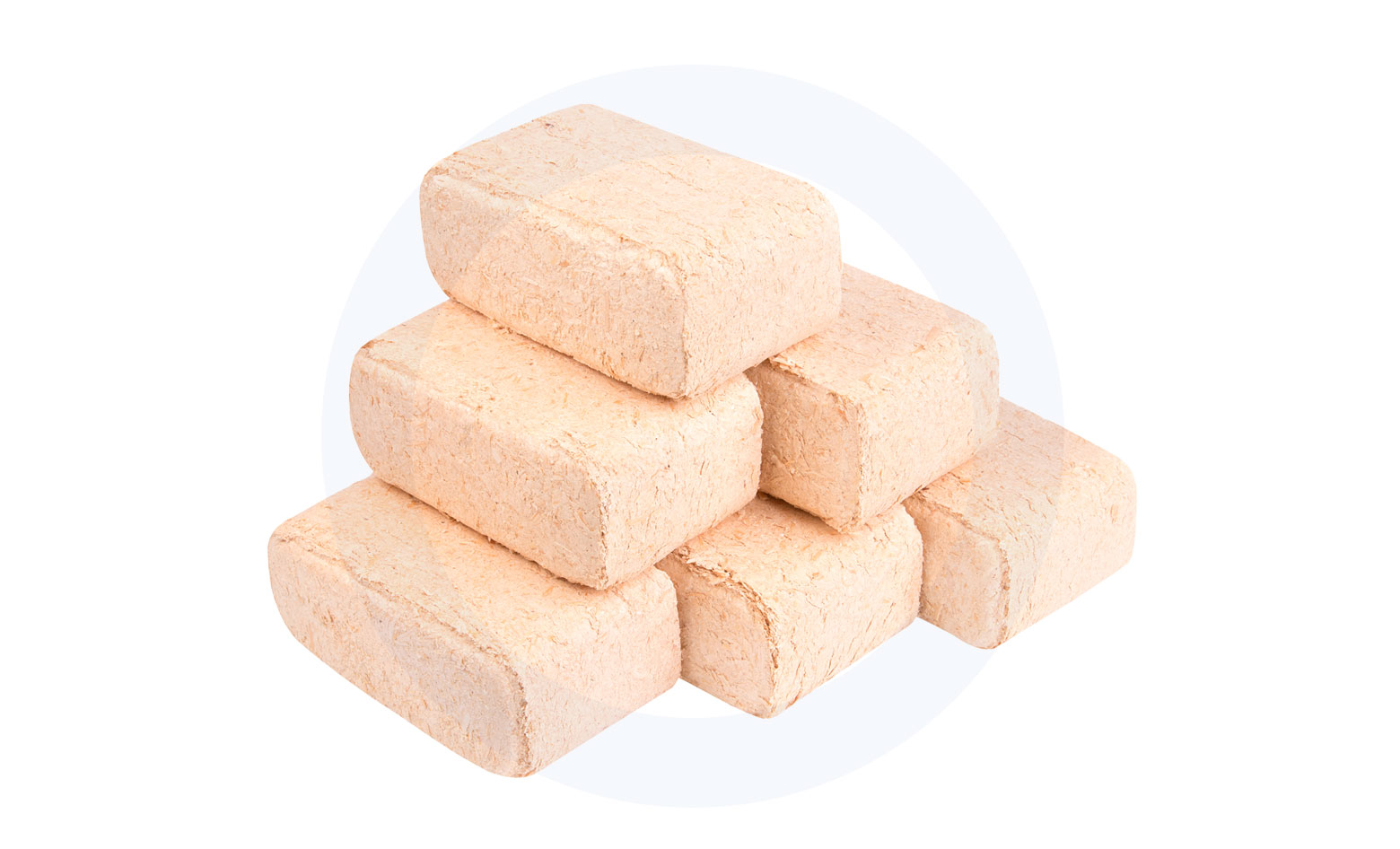Wood Briquettes

Heat Value
≥ 4.6 MWh/t
Moisture
≤ 7.4%
Ash Content
0.28%
Composition
conifer
ECO
100%
Сlimate neutrality
0%
Wood Briquettes
Wood pellets are an efficient and environmentally friendly solid fuel with a calorific value significantly higher than that of firewood. Pellets are suitable for use in modern central heating boilers, stoves, as well as in fireplaces and heating stoves.
Pellets made from various natural materials are available on the market, but the most popular pellet is the wood pellet. A tonne of pellets is equivalent to approximately 3 cubic meters of firewood, is immediately ready for use and does not take up much space.
Advantages of wood pellets:
- It is a natural fuel that does not contain harmful chemical additives, waste, or glue.
- The pellet is approximately 15% drier than firewood, and the moisture content is 10% lower.
- The calorific value of pellets is higher than that of firewood (for example, the calorific value of birch pellets is 1.5 times higher than that of birch firewood).
- The pellet produces less ash, the combustion process is cleaner and safer.
- Emissions of harmful substances are lower.
- The amount of soot released during combustion is small, so there is no risk of clogging the chimney.
- More intense heat exchange and longer burning time (depending on the wood species from 2 to 10 hours), which ensures uniform heat distribution and heat in the room for a longer period.
- Pellets are easy to transport and store.
- Pellets can be combined with firewood.
Disadvantages of pellets:
- Heating pellets quickly absorb moisture, can decompose, as a result of which they lose their suitability for use.
- Avoid overheating - excessive heating can damage the furnace.
Conclusion:
Wood pellets are an efficient and environmentally friendly fuel that can be used to heat residential homes, industrial plants, and large power plants. They are made from waste from the forestry industry, which helps to reduce waste and greenhouse gas emissions.
Additional information:
- Wood pellets can be made from various types of wood, but the most common are pellets made from birch, aspen, and coniferous species.
- Wood pellets can have various shapes and sizes, but the most common are cylindrical pellets with a diameter of 6-8 cm and a length of 20-30 cm.
- The cost of wood pellets depends on the type of wood, the shape and size of the pellets, and the region in which they are produced.